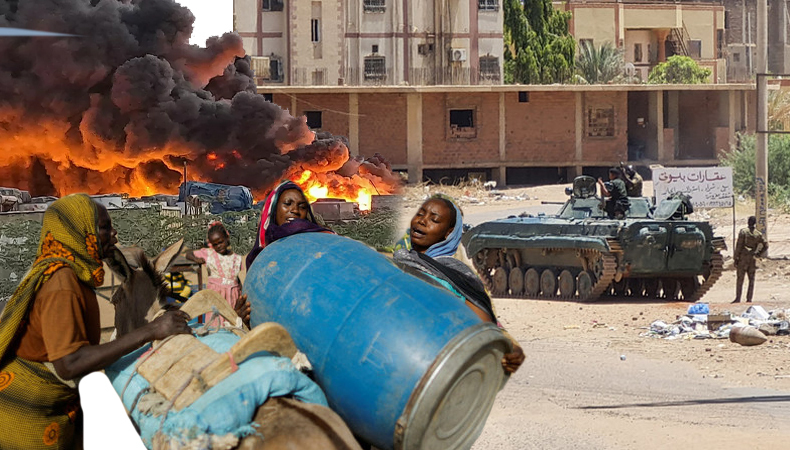Why Sudan’s upheaval and power vacuum are a threat for global security

Three harsh weeks have passed since the start of the conflict between Gen. Mohamed Dagalo and his Rapid Support Forces (RSF) and Gen. Abdel Fattah Al-Burhan, the de facto leader of Sudan and commander of the Sudanese Armed Forces (SAF).
Also Read – Sudanese obstetrician delivers dozens of babies amid constant bombardment
When the two former partners, who had collaborated to overthrow tyrant Omar Al-Bashir less than four years earlier, broke out, the tensions that had been building over the planned integration of Dagalo’s paramilitary force into the Sudanese military reached a boiling point on April 15.
One of the many questions on the minds of geopolitical experts and Africa analysts is whether a protracted, bitter feud between the two generals will cause Sudan to suffer the same fate as two sizable, now largely ungoverned countries in North Africa, Somalia and Libya, as a result of similar internal conflicts in recent years.
The Sudan has been strategically significant to US administrations’ interests in both Africa and the Middle East for the past 25 years. Early in the 1990s, when the National Islamic Front (NIF) was in power, Sudan had a government that was welcoming to militant organizations of all sorts, most notably Al-Qaeda.
Sudan was listed as a state sponsor of terrorism by the US in 1993, but by 1996 it had come to be seen as a haven, nexus, and training center for a number of foreign terrorist groups, mostly of Middle Eastern provenance. Osama bin Laden was forced to leave Sudan’s territory in May of that year after three crucial UN Security Council resolutions were adopted.
The Bill Clinton administration authorized cruise missile strikes on a pharmaceutical company in Khartoum two years later in revenge for the fatal bombings of two US embassies in East Africa on August 7, alleging that the facility was used by Al-Qaeda to create components for chemical weapons.
Also Read – Sudan’s fight traps African victims in endless cycle of displacement
However, Sudan has upheld its end of peace agreements in Darfur and what is now South Sudan throughout the past ten years and has continued to work with its foreign allies in the fight against terrorism. However, these successes are under jeopardy as the 45 million-person nation descends into a sea of anarchy, organized crime, and economic ruin.




